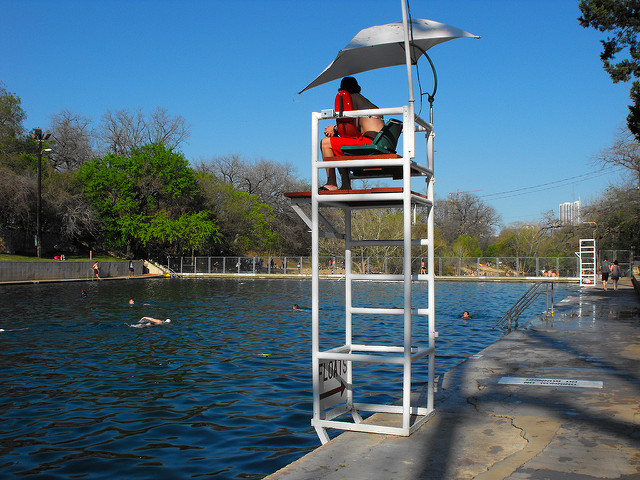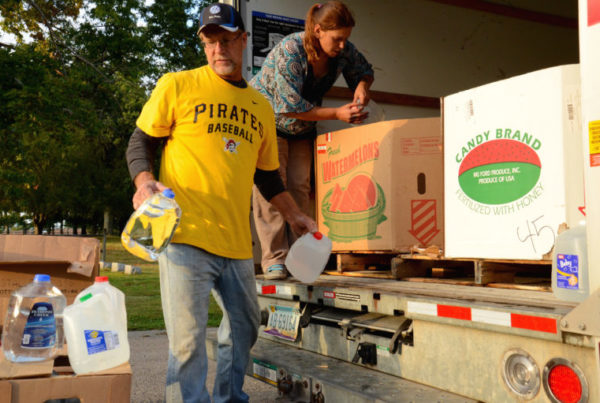Can you imagine giving the gift of life? That’s part of the inspiring sales pitch BJ Fisher uses for recruiting new lifeguards. Fisher is with the American Lifeguard Association.
“Can you imagine giving the gift of life – to a child, one of their parents – by knowing CPR, (by knowing) what to do. You can do that,” he says.
Fisher’s challenge, while inspiring, can also be daunting. Lifeguarding has the potential to put you face to face with a life and death situation, unlike most summer jobs.
Fisher says his first save was a father. He was 16, and the father was unruly. When Fisher scolded him, the man didn’t take it well and got angry. Later that day, Fisher heard the man yelling from the pool and pointing at him. The teenager thought the man just wanted to pick a fight and ignored him.
“Then when I realized he was in trouble, I pulled him out,” he says.
He did CPR, and an ambulance came, but the man was in grave condition. He was hospitalized for two weeks before making a full recovery.
Then he came to the pool to see Fisher.
“He reached out his hand and I shook it and it was so warm, the last time I touched him – it was blue,” Fisher says. “And he says, ‘I want to thank you for what you’ve given my kids.’ Here I am just a youth thinking, ‘What did I give his kids?’ And he says “You’ve given them a father. And the first time around I wasn’t a very good father, but because of you, I’m gonna make it up to them.’”
That’s what got Fisher hooked – and to this day, he works on rescues. For him, lifeguarding has turned from a job into a passion. But his passion doesn’t seem to be catching on.
Young people say the daunting task of being responsible for someone else’s life is one of the reasons they stay away.
Hunter Hardeman with the Aquatics division of the City of Grapevine says another turnoff is the training requirements. A kid can be a couch potato one day and working retail or at a restaurant the next. That’s not the case in lifeguarding.
“You have to have the proper training, you have to have a certain number of certifications – and the certifications are not cheap,” Hardeman says. “If you are going to a certification class it can be more than $200 to get certified, and so the high-schooler who doesn’t have a job and doesn’t have that money they need to recuperate whatever they make with their job.”
Becoming a lifeguard is not cheap and in many places, baking under the hot Texas sun pays only between $8 and $10 an hour.
But perhaps the number one reason isn’t money or training – it could be that lifeguards are not allowed to bring their cell phones to work.
“We have a generation that is hard for them to detach from that type of technology,” Fisher says.
So how can pools staff their lifeguarding posts if teens aren’t interested?
Standing by Deep Eddy pool, the oldest public swimming pool in Texas, Kimberly McNeeley with the City of Austin says she’s looking at non-conventional demographics: like retirees and teachers.
“If you always do what you always did – you’ll always get what you always got – and so we want to just take a look and explore other ideas for recruitment,” she says.
Austin and Grapevine are just two of the many Texas cities expanding their hiring pool. They say retirees are often reliable with a good work ethic – and they’re okay with leaving their cell phones at home.















